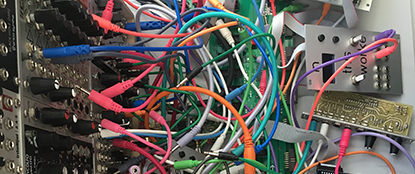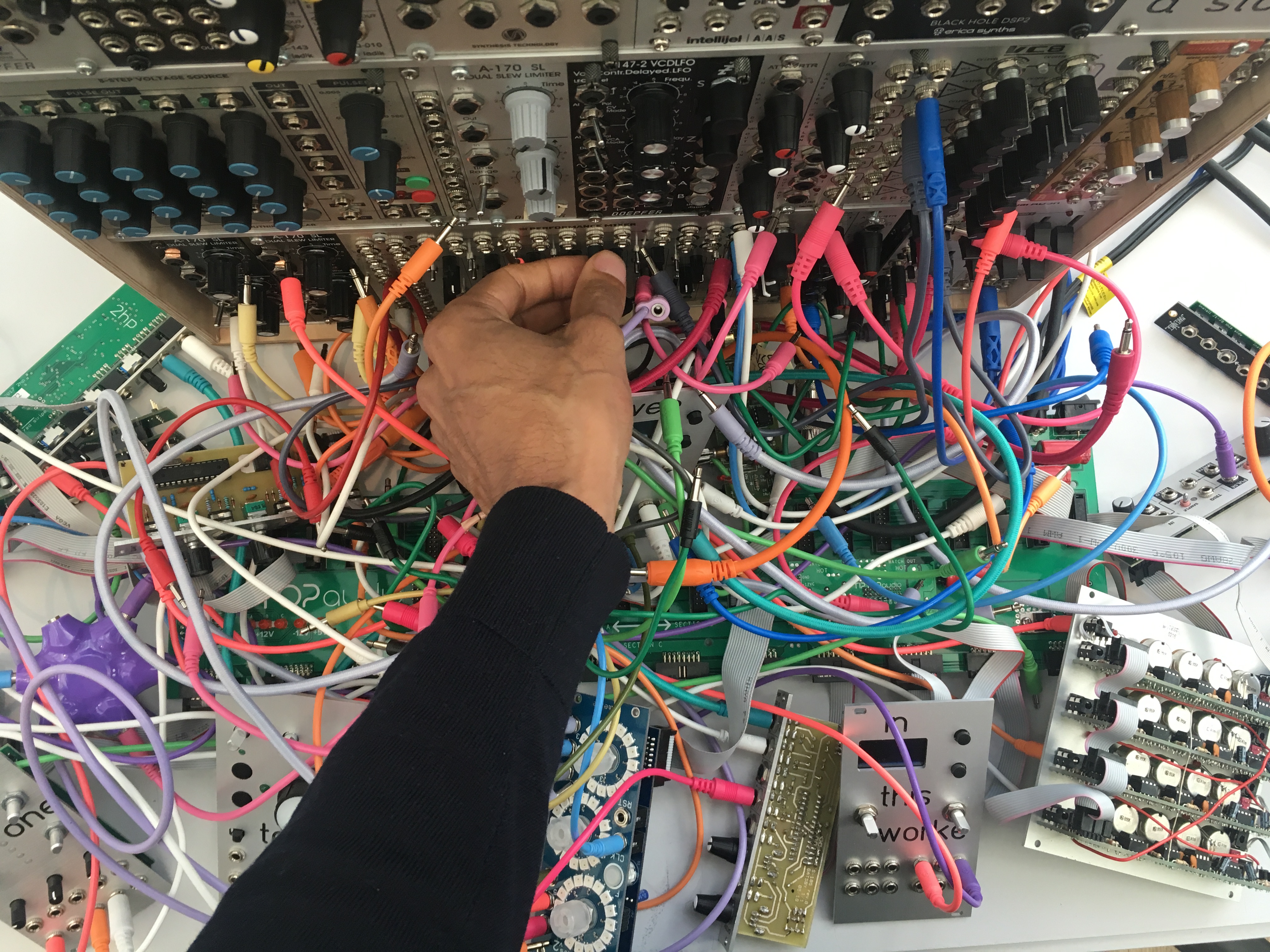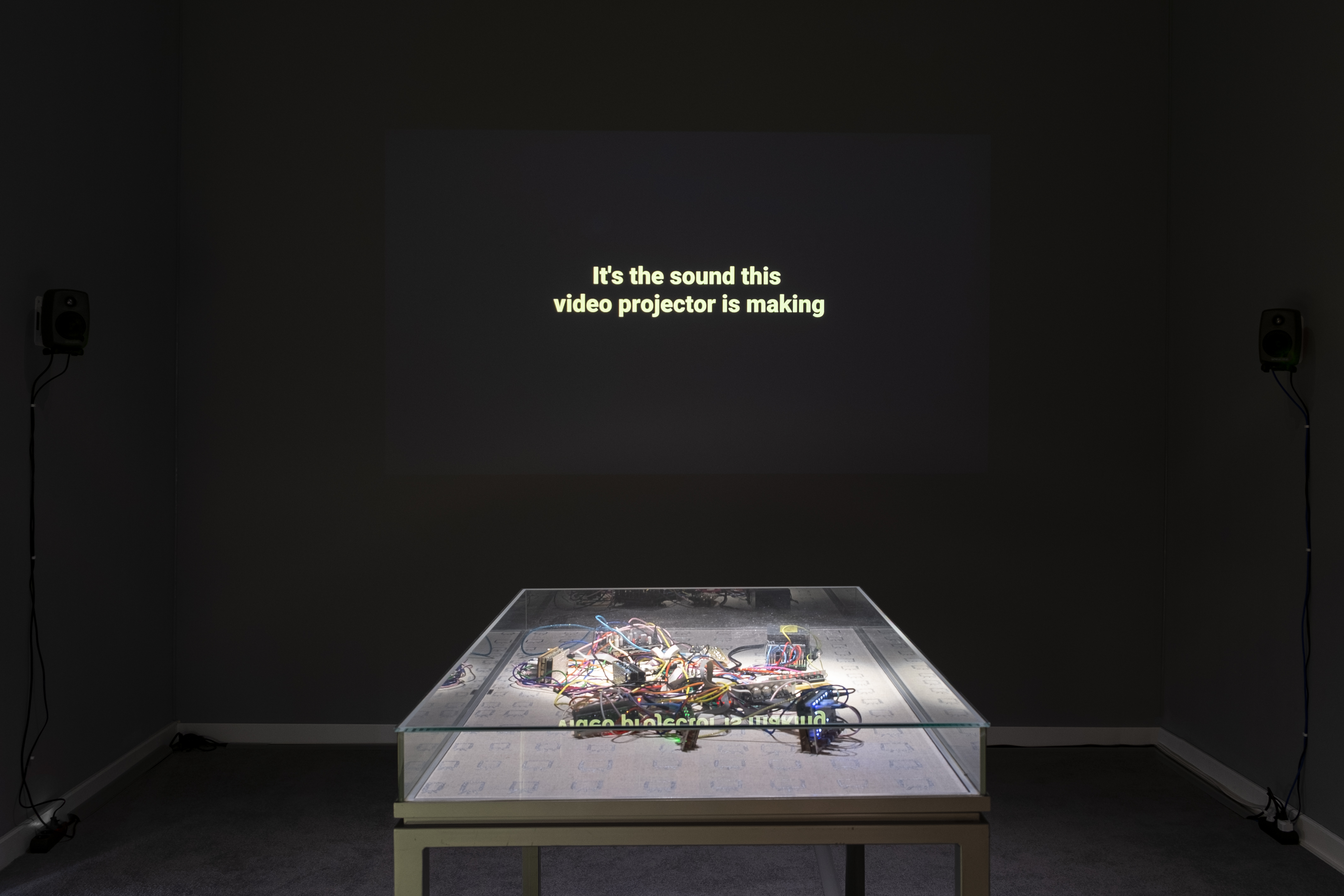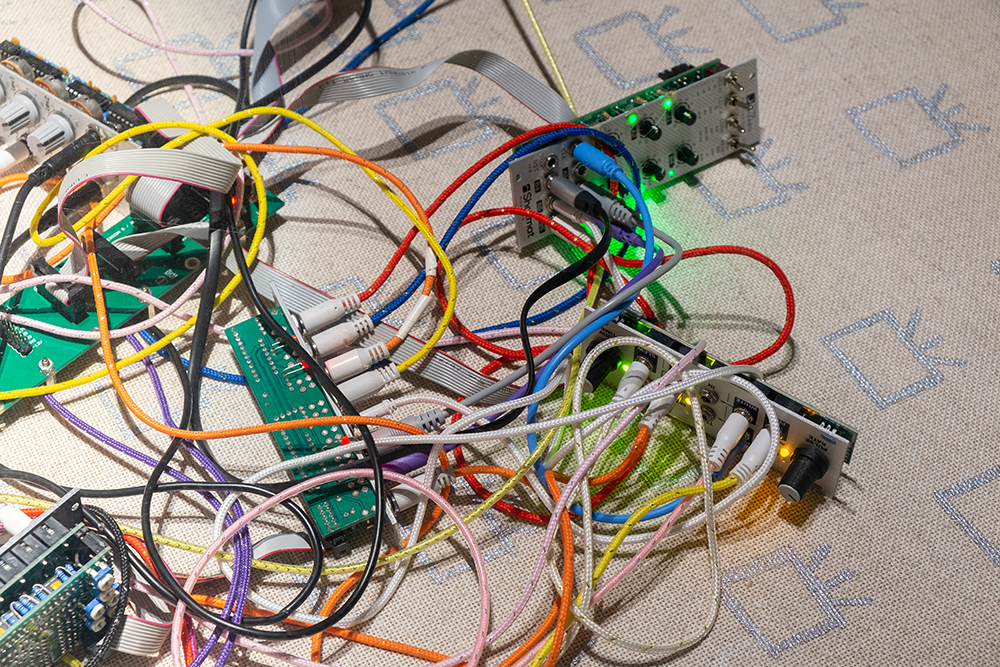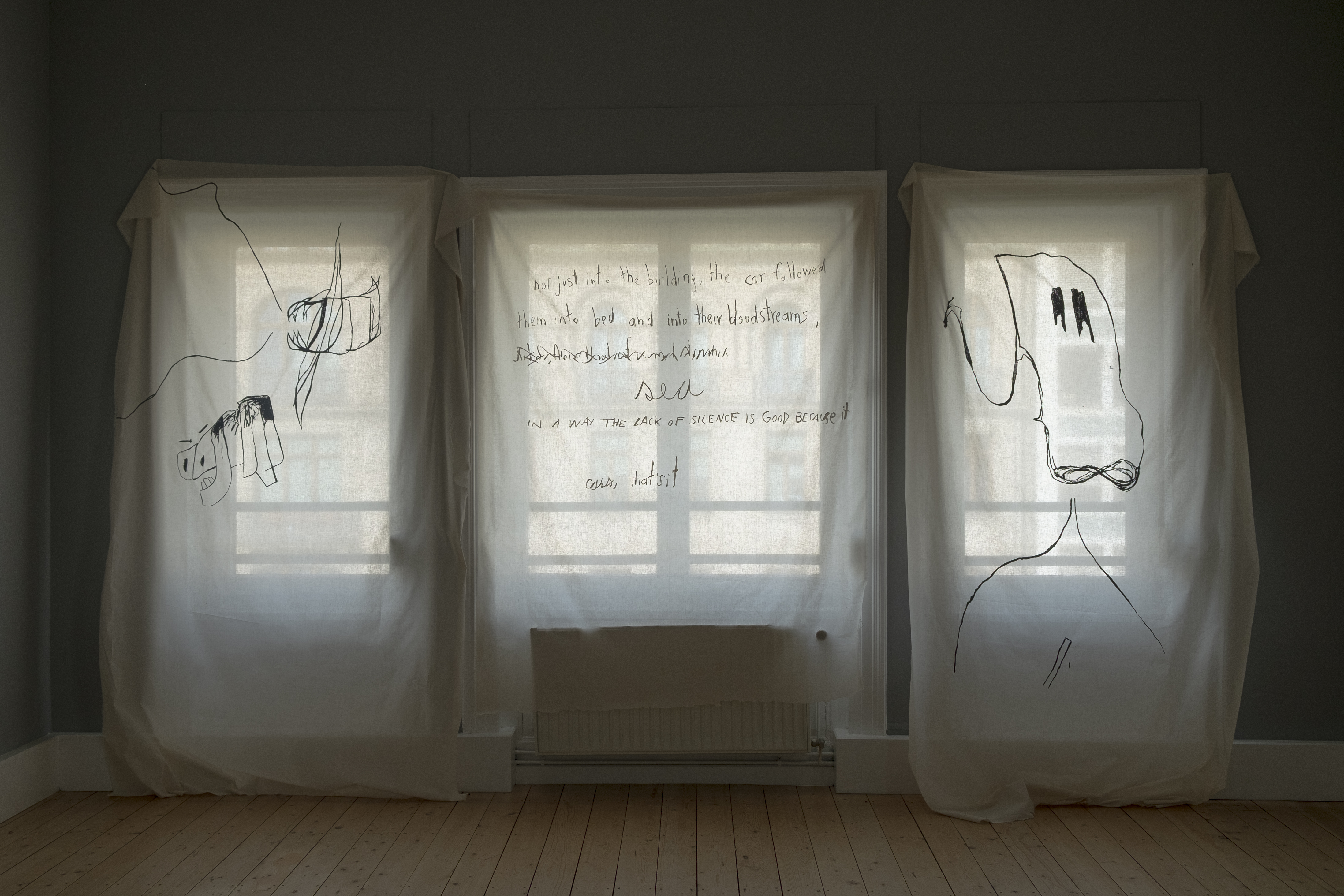Jace Clayton explores the contemporary ramifications of white noise in an exhibition consisting of sound, textile, drawings, video, and focused listening. Clayton is the twelfth scholar recipient of the Follow Fluxus - After Fluxus scholarship, called by the state capital of Wiesbaden and the Nassauischer Kunstverein.
In this new trio of works he utilizes acoustic phenomena, given as mundane and innocuous, to ask how it shapes our sense of communal responsibility, contemporary subjectivity as it stretches from the therapist’s office to the dancefloor, and the relationship between algorithmic control and unpredictable futures.
The exhibition consists of three pieces installed across two rooms: Privacy Choir, White Noise Night Sweats, and Street Seeper.
Privacy Choir is Clayton’s sound-sculpture for five white noise machines. White noise machines were introduced in American psychotherapeutic offices in the 1970s. Their noise is used to mask the patient’s speech, securing their privacy and reinforcing the singularity of their personal narrative. Privacy Choir examines the relationship of white noise to maintenance of the individualistic self while offering a collective experience of sound.
Street Seeper is a sound work that does not generate audio. Instead, it frames the existing ambient traffic sounds using textile, text, and an architectural intervention. Car-, plane-, and air-conditioner noise are the sonic manifestation of environmentally unsustainable apparatuses. Instead of ignoring this omnipresent white noise, Clayton invites us to hear it as a constant alarm about the one crisis that unites us all: global warming.
Clayton’s White Noise Night Sweats features a self-modulating composition for modular synthesizers composed solely of snare and high-hat sounds made from analog white noise in the same way as the legendary and iconic drum machine, the Roland TR-808 (1981-1983). The synthesizers are accompanied by a text-based video and hundreds of small transistor drawings in symbolic homage to the 12,000 faulty transistors that generated the hugely popular analog white noise of the TR-808. (Since the manufacturing errors could not be recreated and the noise was central, only 12,000 copies of the drum machine were made.)
White noise is a random combination of all frequencies of sound. This type of true randomness is common in the organic world, but impossible to create digitally – computers can only generate pseudorandom data.
As we move into an era of increasing algorithmic control, these moments of serendipity remind us of the possibility of radical change, and that the touch of human is critical.
Jace Clayton proposes that sound offers alternative ways of being in and understanding the world:
“Much institutional learning relies on what I call ‘visual epistemologies’ – a belief in critical distance and clear subject/object distinctions allowing for topic mastery. Sound suggests modes of knowing based on proximity, resonance and modulation, where the listening body is implicated and situated. In this way, it offers a distinct epistemology from which to create and communicate. My approach to sound art contrasts with various European traditions that posit sound as somehow outside of the social and the political. It has long been my belief that sound is a means for engaging some of the most vital, urgent social issues of the day."
About the artist /
Jace Clayton (* 1975, Framingham, MA, US) studied English at Harvard University in Boston. He served as Distinguished Visiting Professor at the University of North Carolina at Chapel Hill and Duke University from 2017 to 2018 and has been a member of the Music/Sound Faculty of the MFA program at Bard College, New York, since 2013. In 2016, his book Uproot: Travels in 21st-Century Music and Digital Culture was published. 2019, he had a solo exhibition at Harvard-Art-Museum, presenting works from his one-year artist-in-residency.
In addition, he contributed to the Sharjah Biennial 2019. He is also known under the pseudonym DJ /rupture. He lives and works in New York.
About the scholarship/
Since 2008 Follow Fluxus – After Fluxus supports young international artists whose work suggests ideas inherent to the Fluxus art movement in order to further develop the movement. The endowment of 10,000 Euro is provided annually for a residency in Wiesbaden from June 2018 through August 2018.
The jury of five persons consisted of Nevin Aladağ (artist and documenta 14 participant, Berlin), Dr. Matthias Mühling (director Lenbachhaus Munich), Michael Berger (Collection Berger, Wiesbaden), Dr. Isolde Schmidt (Cultural Office Wiesbaden) and Elke Gruhn (chairwoman, artistic director and curator, Nassauischer Kunstverein Wiesbaden). Jace Clayton was proposed by Jessica Morgan, director of New York’s Dia Art Foundation, for the grant.
The previous awardees of the scholarship Follow Fluxus were Emily Wardill (United Kingdom), Jimmy Robert (Guadeloupe), Aslı Sungu (Turkey),
Kateřina Šedá (Czech Republic), Stefan Burger (Switzerland), Annette Krauss (Netherlands), Taro Izumi (Japan), Mehreen Murtaza (Pakistan), Adriana Lara (Mexico), Gerrit Frohne-Brinkmann (Germany) and Assaf Gruber (Israel).

